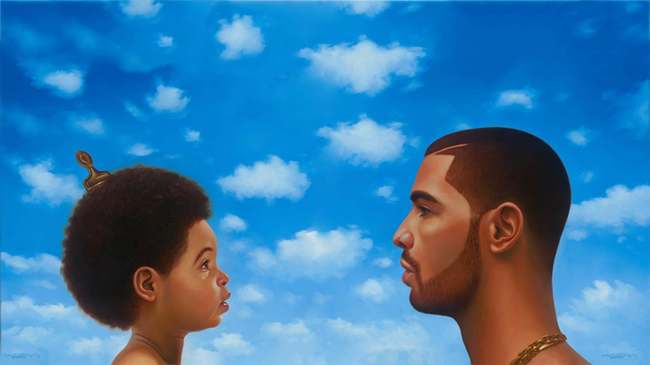Devin the Dude // One for the Road
Devin the Dude’s eighth studio album grants his fans another easy-going, unpretentious listening experience to sit back and relax to. One for the Road is typically Devin in style; his smooth, effortless southern flow complements his typical thematic emphasis on drinking with friends, smoking weed, and generally doing whatever it is you do to have a good time.
Devin has been releasing consistently quality LPs for a while now, yet he remains firmly under hip-hop’s mainstream radar. He’s very much your favourite rappers’ favourite rapper: respected and well liked in the industry because of his commitment to creating the kind of music that reflects him as an individual… positive, playful and supremely chilled. The album kicks off in vintage Devin style with the infectious I’m Just Getting Blowed. It’s a song that perfectly encapsulates him as an artist, not just because of its focus on his favourite past time, but due to the insight it gives into many of his rather unhiphop-esque attitudes. For example, on the issue of bad-mouthing and beefing, hallmarks of the rap game, Devin notes that there “ain’t no need in plotting/cause that shit will leave you nothing/but alone and rotten/ friends gone and forgotten/but there’s another option”.
It’s hard not to like Devin on an individual level, as well as an artist. He comes across well in his rhymes, and One for the Road is no different in that respect to his previous work. Whether he’s reflecting on regrets of a past relationship (Probably Should Have) or urging you to follow your dreams and make the most of life (Stop Waiting) it’s refreshing to listen to a rap artist who is so at ease with himself. He isn’t out to prove anything to anyone; he’s simply all about enjoying the good times and sharing with you a few words of wisdom with a healthy chaser of humour.
Eminem // The Marshall Mathers LP 2
Eminem returns after a couple of disappointing albums with The Marshall Mathers LP 2, more of an ode, rather than a sequel, to his classic sophomore release The Marshall Mathers LP.
Eminem has been battling an array of personal demons for some time; his debilitating dependence on prescription drugs and deteriorating mental health were no doubt contributing factors to the rather woeful Relapse (2009). While Recovery (2011) was met with a more positive critical response, fans couldn’t help but feel that Eminem’s best days were most certainly behind him. While MMLP2 doesn’t signify a complete return to the dynamic lyricism and standout production that made his first three albums modern day hip-hop classics, there are promising flashes of the Eminem of old.
With an ambitious shift in production that works more often than not, the satirical, outlandish and controversial Eminem we’ve come to love over the years returns, and we’re here to welcome him with open arms.
Rick Rubin – whose list of production credits continues to diversify at a remarkable rate (Kanye West, Adele, Linkin Park in the past three years alone) – makes his presence immediately known on Bezerk and So Far, implementing an Offspring esque pop-punk intro which blends into a bad-ass country riff on the latter. He’s certainly a significant factor in the album drawing from an incredible range of musical influences, from heavy rock to hillbilly country.
The result is perhaps Eminem’s most immediately accessible album to date, particularly for novices of the rap genre.
Ultimately however, it’s always been about the lyrical content for fans of Slim Shady, and it’s here that the album accomplishes the most.
On Legacy, Eminem quite beautifully opens up about his childhood, and how his emotional and behavioral problems gave him a unique way with words that then allowed him to channel his rampant fears and insecurities through his rhymes, offering an unrivalled form of escapism for a severely troubled young individual. His raw honesty, as skillfully delivered as ever, combined with the simple beat and emotional hook (wonderfully sung by Pontia) work in unison to create a track worthy of being held alongside his very best.
Honesty is a theme prevalent throughout; Eminem knows that his demons still lie within – the dichotomy between Marshall Mathers and alter ego Slim Shady is as apparent as ever – yet he’s comfortable with this, and thus we can enjoy, perhaps for the first time, a supremely talented individual seemingly at peace.



